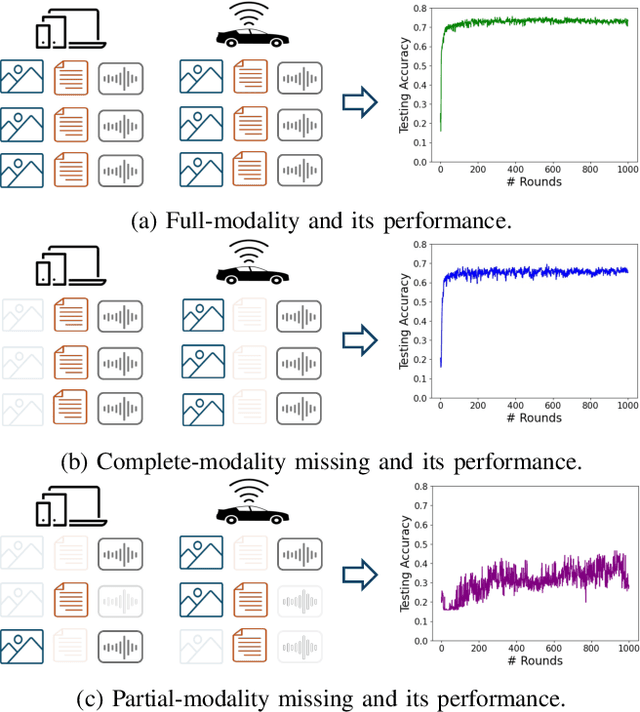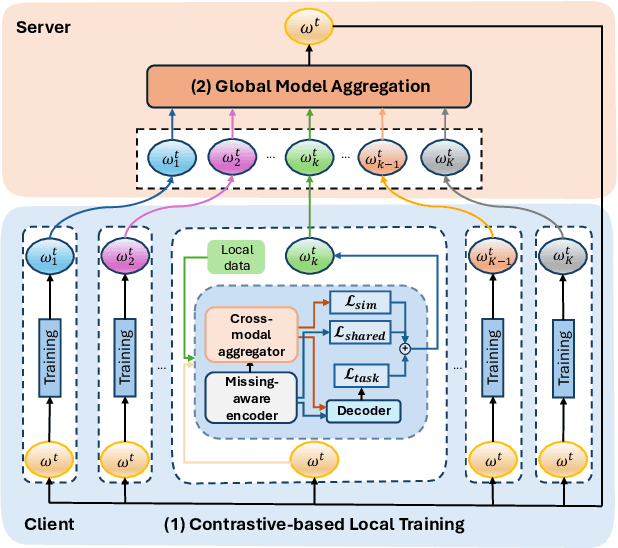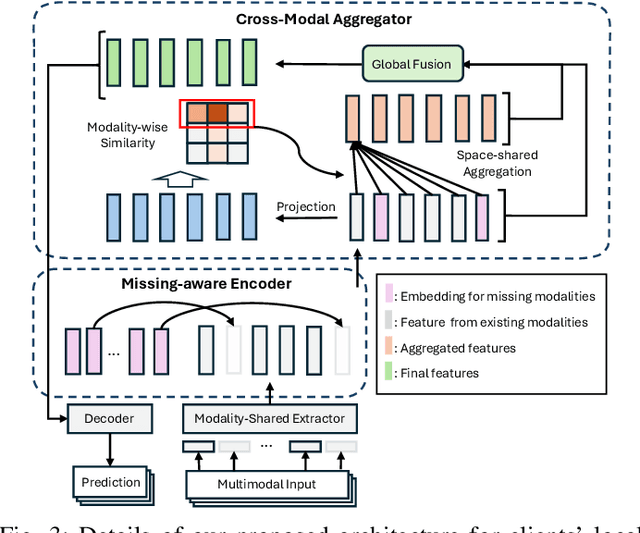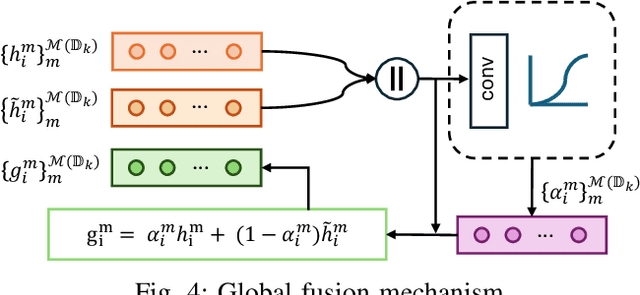FedMAC: Tackling Partial-Modality Missing in Federated Learning with Cross-Modal Aggregation and Contrastive Regularization
Paper and Code
Oct 04, 2024



Federated Learning (FL) is a method for training machine learning models using distributed data sources. It ensures privacy by allowing clients to collaboratively learn a shared global model while storing their data locally. However, a significant challenge arises when dealing with missing modalities in clients' datasets, where certain features or modalities are unavailable or incomplete, leading to heterogeneous data distribution. While previous studies have addressed the issue of complete-modality missing, they fail to tackle partial-modality missing on account of severe heterogeneity among clients at an instance level, where the pattern of missing data can vary significantly from one sample to another. To tackle this challenge, this study proposes a novel framework named FedMAC, designed to address multi-modality missing under conditions of partial-modality missing in FL. Additionally, to avoid trivial aggregation of multi-modal features, we introduce contrastive-based regularization to impose additional constraints on the latent representation space. The experimental results demonstrate the effectiveness of FedMAC across various client configurations with statistical heterogeneity, outperforming baseline methods by up to 26% in severe missing scenarios, highlighting its potential as a solution for the challenge of partially missing modalities in federated systems.
 Add to Chrome
Add to Chrome Add to Firefox
Add to Firefox Add to Edge
Add to Edge